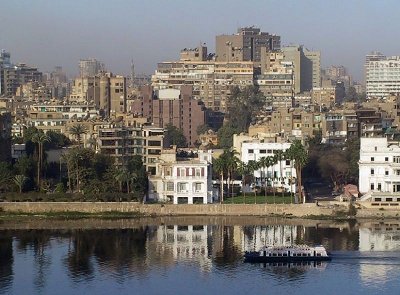Turmoil in Egypt continues in the wake of President Mohamed Morsi's ouster last week. The nation’s first democratically elected leader was a member of the Muslim Brotherhood, but other groups within Egypt disapproved of his administration. Protests in Cairo ended with the Egyptian military forcibly removing Morsi from office on Wednesday, July 3rd and replacing him with Judge Adly Mansour, the head of the High Constitutional Court, as interim leader.
Conservative Islamists have in turn protested the coup and called for the return of deposed President Morsi to finish out his term. One such protest outside the Republican Guard headquarters in Cairo ended with bloodshed earlier today.
At least 51 civilians were killed in the clash, and another 435 were injured. The Egyptian army reports that 1 soldier also died and 42 were injured—8 remain in critical condition.
Reports on what sparked the violence vary. The army has stated that “an armed terrorist group” attempted to storm the Republican Guard HQ and attacked security forces. At least 200 individuals have been arrested who the army says were caught with large quantities of firearms, ammunition, and Molotov cocktails.
Conversely, the Muslim Brotherhood issued a statement calling the protesters peaceful, saying that the army “fired tear gas and gunshots at them without any consideration for the sanctity of prayers or life” while the group was engaged in performing the early morning Fajjr prayers. The statement added that “This is also a violation against people's right to peaceful protest.”
As an investigation into the clash is underway, strong reactions have been expressed by leaders throughout Egypt. Constitution Party leader Mohamed ElBaradei said via Twitter “Violence begets violence and should be strongly condemned. Independent investigation a must. Peaceful transition is only way.”
The National Salvation Front, Egypt’s largest opposition coalition, expressed “deep sorrow” over the incident. Abdel-Moneim Abul-Fotouh, the leader of the Strong Egypt Party and a critic of Morsi, called for interim president Adly Mansour to step down, declaring the incident “a horrible crime against humanity and all Egyptians.”
Mohab Doss, a spokesman for the Rebel Campaign—the main driver behind call for the June 30th protests which ended in Morsi’s eventual ouster—said the incident was a reaction of the army to intimidation by Islamist groups. The Rebel campaign condemned what it believed to be vengeful attempts against the army.
Doss did concede that “the whole truth of what really happened should be uncovered through an independent investigation.”
[Source: Ahram]










